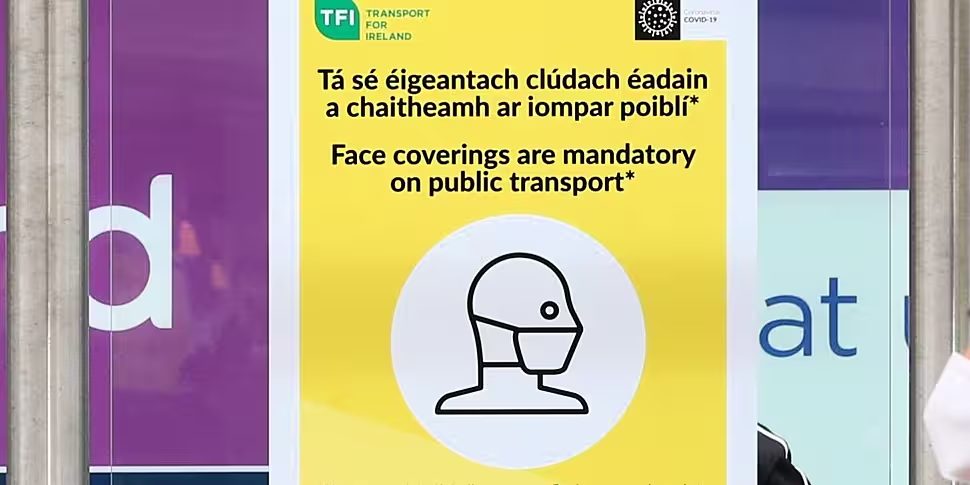People should treat their face masks like their underwear, according to leading immunologist Prof Luke O'Neill.
He said it's vital that people change their masks regularly and wash them if they're reusable.
Professor O'Neill told The Pat Kenny Show that the evidence for masks "just get stronger every day".
Face coverings are now mandatory here on public transport, with the Government saying regulations are also set to be introduced shortly to make the coverings mandatory in shops and shopping centres as well.
All customers are currently being advised to wear them, with the same advice for staff unless there is a partition or two metres distance between them and members of the public.
Professor O'Neill said the question is how you get people to wear the masks in settings such as shopping centres.
He said: "If there is a spike in Dublin and we see an increase in cases… maybe that’s going to motivate people to start wearing them.
“Many other countries have now made them mandatory - not just in shops, but outdoors. In Melbourne it’s mandatory anywhere now - you’ve got to wear a mask, and there’s an on the spot fine if you don’t. We may be heading in that direction."
In terms of mask hygiene, he observed: “The big advice at the moment is treat your mask like your underwear… Some people change their underwear every day, and that’s probably a good thing: put it in the wash.
“Imagine it’s like your underwear, and change it regularly and wash it.”
However, responding to a listener’s query, he said it’s not at all advised to attempt to disinfect a mask in the microwave - as there’s a risk that it will burst into flames.
'Great week' for vaccine research
Elsewhere, Professor O'Neill said it's been a "great week" for work towards a COVID-19 vaccine - with four potential ones having now reached a pivotal stage of testing.
While the work and research is still evolving, there is the potential that an eventual vaccine could require two separate shots.
Professor O'Neill explained: “You get an initial shot, and the immune system kind of gets going a bit. But now its primed: you’ve woken it up and it’s out of bed, if you’d like.
“Then you get a second shot, and it leaves the house and goes to work… many vaccines are like that.
“There’s a slight worry in that that the second shot can sometimes see more side effects.
“If four [vaccines] make it to market, two might be preferred because people feel better on them - some symptoms, but not such that you can’t go to work."
He said phase three trials of the potential vaccines will see safety issues looked at very closely, and also emphasised the scale that will be involved in these advanced trials.
He explained: “You need 15,000-20,000 people to be vaccinated, and then 15,000-20,000 people to not be vaccinated as a control group.... You need those bigger numbers.
“Trying to recruit 30,000 people isn’t easy. It’s in Brazil, mainly, because that’s where the virus is. This is a massive logistical operation.”
He also noted that so much research is ongoing at the moment about COVID-19 that there are likely going to be more benefits as researchers discover more about the immune system - including possibly learning more about the likes of the common cold.









